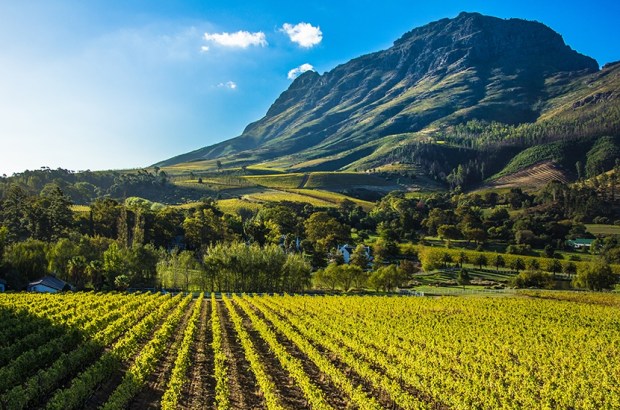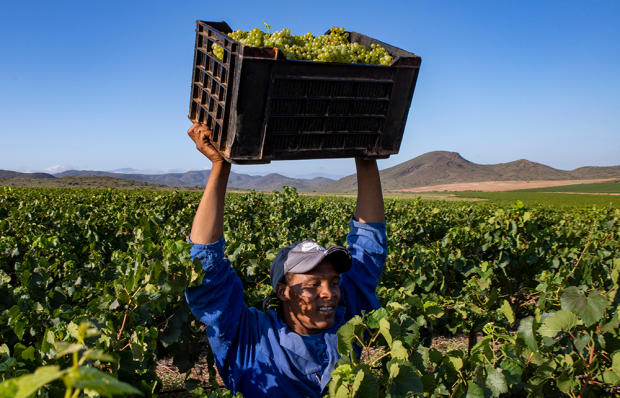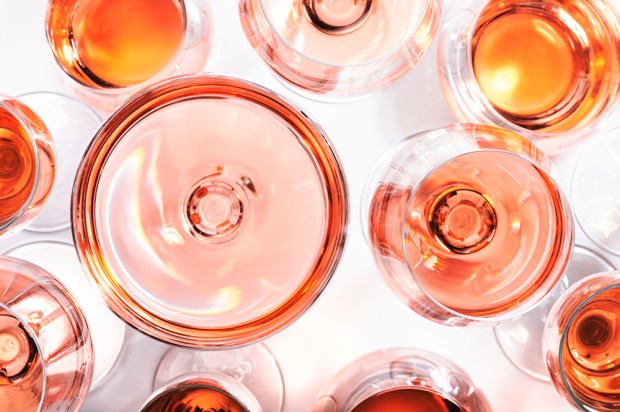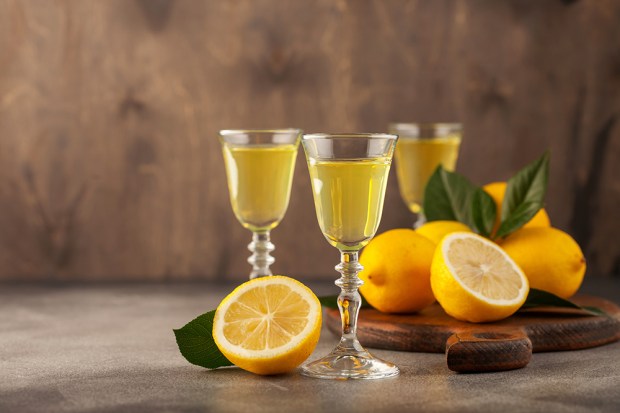One aspect of the old South Africa’s racial policies cannot be faulted. After the revocation of the Edict of Nantes, Huguenot refugees arrived at the Cape. Within a few decades, they had been culturally cleansed, abandoning the French language and becoming decent Afrikaners. If only we had possessed the foresight to do something similar in Quebec. But the immigrants were allowed to retain a legacy of their grenouille past: wine-making skills. They planted vineyards around Franschhoek and Stellenbosch, creating a great oeno-phile tradition which still flourishes.
The terroirs are in achingly beautiful terrain. Early on my first visit to South Africa, in 1984, I met a chap who had been working in the President’s Council — the equivalent of our Cabinet Office — at a senior level, but was giving that up for a chair at Stellenbosch, though he was only in his late thirties. I asked him why the devil he was rusticating himself and got only mumblings for an answer. I ran into him a few weeks later and he looked as if he was about to resume the mumblings. ‘No, no,’ said I, ‘you don’t need to explain anything. Since we spoke, I’ve been to Stellenbosch.’
It is a university town, and on that glorious autumn day, several elevens of Valkyries were cycling back from tennis: the blond flower of Afrikaner maidenhood, also achingly beautiful. There were young men too, coming back from rugger, with thighs like oak trees. It was surprising that the bikes could bear their weight, and the Springboks were not about to run short of prop forwards. I was with a homosexual colleague. So moved was he by the flower of Afrikaner manhood that I feared we would all be arrested.
The academics of Stellenbosch were also a source of flowering. Although history will be reluctant to give them credit, André du Toit, Willie Esterhuyse and their friend Wimpie de Klerk played a crucial role in creating a new dispensation in Afrikanerdom. I remember many evenings in the gardens of Stellenbosch. We all agreed that the blacks should have the right to full human dignity, immediately. There should be economic equality of opportunity and an extensive programme of educational uplift, immediately. Blacks should have equal rights in local government, immediately. State power: there, consensus was harder. How could the necessary fundamental change be achieved without chaos? The debates went backwards and forwards, fruitlessly. F.W. de Klerk — Wimpie’s brother — was clear-sighted enough to see that the answer was not to be found in niceties. There was no alternative to a leap in the dark.
While deciding the future of South Africa, we often drank the wines of Kanonkop, a distinguished Stellenbosch domain. It produces excellent cabernet sauvignon but also pinotage, a South African cross between pinot noir and cinsault. One evening in Jo’burg, giving dinner to Bill Deedes. I ordered some South African wines, including a seriously old and excellent pinotage, imagining that he would enjoy the fruits of my recent expertise. A couple of nights later, I was dis-abused. A return match, and it became clear that the Deedes palate was firmly grain-based. Wine was something you drank with food, to cover the interval between gin and scotch.
Over the weekend, I renewed my acquaintance with Kanonkop. We had the Pinotage Black Label 2010, far too young but full of power and promise. The same was true of a Cabernet Sauvignon 2008, which I would have taken for a wine from the Médoc. It needs at least another couple of years.
My friends had suffered a flood in their cellar, which destroyed a lot of labels. We had a pinotage and a Paul Sauer — predominantly cab. sauv, but with some merlot and cabernet franc — both from the mid-1990s, both superb. Because of the weak rand, Kanonkop is excellent value. Look out for its wines, especially with some bottle age.
Got something to add? Join the discussion and comment below.
Get 10 issues for just $10
Subscribe to The Spectator Australia today for the next 10 magazine issues, plus full online access, for just $10.














Comments
Don't miss out
Join the conversation with other Spectator Australia readers. Subscribe to leave a comment.
SUBSCRIBEAlready a subscriber? Log in